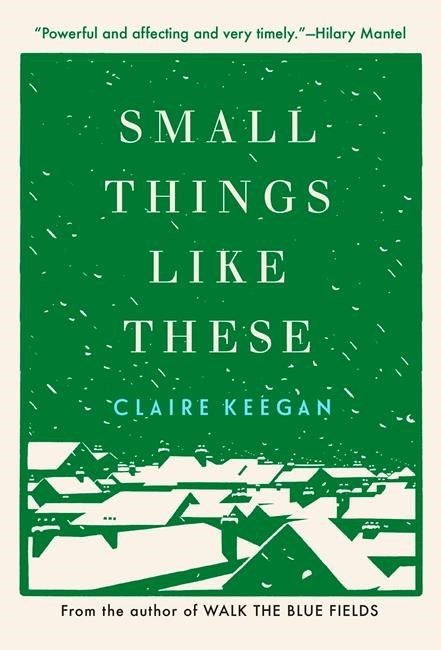
This cover image released by Grove shows "Small Things Like These" by Claire Keegan. (Grove via AP)
November 29, 2021 - 8:17 AM
“Small Things Like These,” by Claire Keegan (Grove Press)
“Small Things Like These” is a gem of a slim novel about a family man faced with a moral decision.
In just 114 pages, the book introduces readers to Bill Furlong, a coal merchant in a small Irish town. “Furlong had come from nothing,” writes Keegan. His mother was just 16 when he was born after the Second World War and he never knew his father. They survived thanks to the kindness of his mother’s employer, a wealthy widow with household staff. The year is 1985 and students of Irish history will glean something from the dedication: “This story is dedicated to the women and children who suffered time in Ireland’s mother and baby homes and Magdalen laundries.” Readers ignorant of Irish history will have to wait for “A Note on the Text” at the end of the novel for some helpful context.
Context in advance or at the end, it’s still a deeply moving tale. Furlong is the father of five girls, stuck in a bit of a rut. Up before the sun rises to supervise work at the coal yard, he lies in bed with his wife after the end of each long day, going over things that need doing or sharing bits of gossip he picked up during the day’s deliveries. It’s that simple act that gives the novel its title: “Some nights, Furlong lay there with Eileen, going over small things like these,” writes Keegan.
But the smallest of things often have much bigger implications, as readers soon learn. Delivering coal one day to the local convent, Furlong happens upon “more than a dozen young women and girls, down on their hands and knees with tins of old-fashioned lavender polish and rags, polishing their hearts out in circles on the floor.” “Mister, won’t you help us?” intones one of the girls, whose “hair had been roughly cut, as though someone blind had taken to it with shears.” The encounter affects Furlong deeply and the latter half of the novel finds him reflecting on his own upbringing as he builds toward his decision. Will he stay silent or will he help?
Keegan’s economy of prose is a marvel. Here’s Furlong, back at the convent, about to meet the Mother Superior: “Furlong looked down at the dark shining river whose surface reflected equal parts of the lighted town. So many things had a way of looking finer, when they were not so close. He could not say which he rathered: the sight of town or its reflection in the water.”
The book takes just an hour or so to read, but you still feel like you know Bill Furlong by the end and understand why he does what he does. His tale of quiet heroism doesn’t require any more words.
News from © The Associated Press, 2021